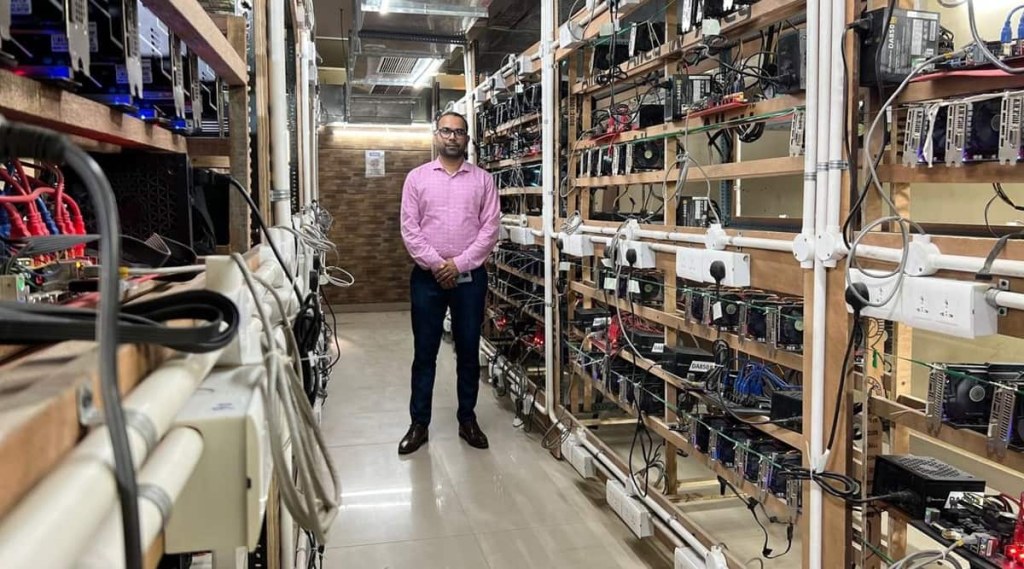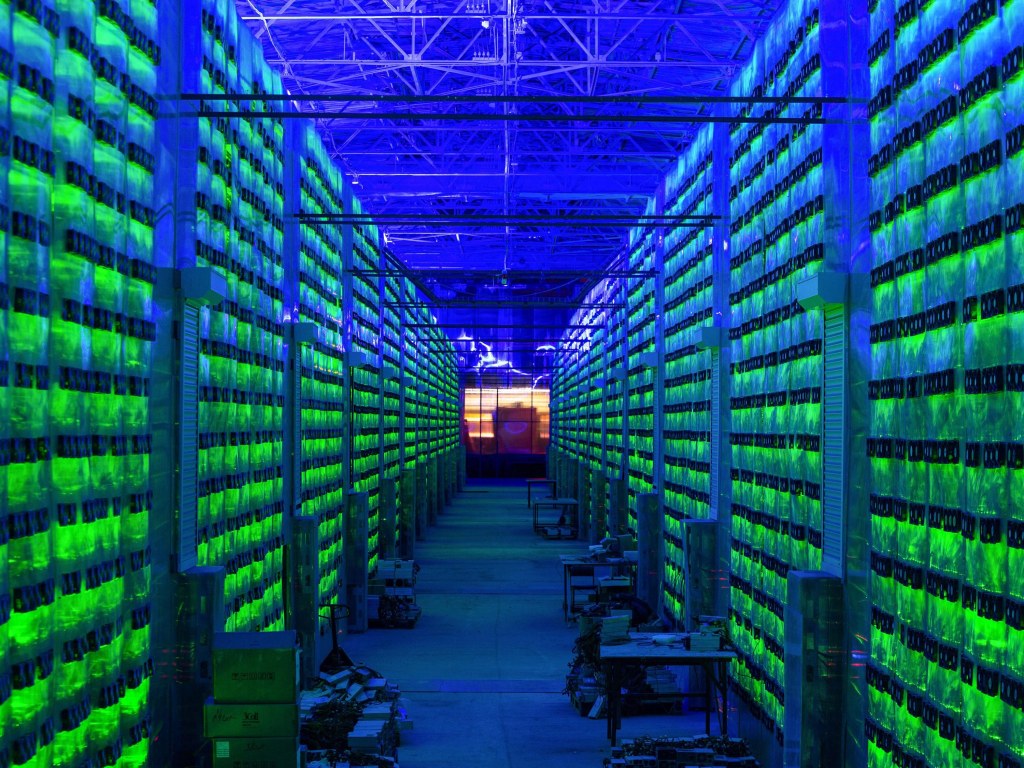Unleash The Power Of Cryptocurrency Mining: Experience The Future Today!
Cryptocurrency Mining: A Comprehensive Guide
Introduction
Hello, Readers! Welcome to our comprehensive guide on cryptocurrency mining. In this article, we will dive into the world of mining cryptocurrencies and explore the various aspects and intricacies of this increasingly popular practice. Whether you are a seasoned investor or just curious about this digital phenomenon, this guide will provide you with valuable insights and knowledge. So, let’s get started!
Cryptocurrency mining has emerged as a crucial component of the digital currency ecosystem. It involves the process of validating transactions and adding them to the blockchain, the decentralized ledger that underpins cryptocurrencies. Miners use powerful computer systems to solve complex mathematical problems, which in turn enables the smooth functioning and security of cryptocurrencies.
2 Picture Gallery: Unleash The Power Of Cryptocurrency Mining: Experience The Future Today!


In this guide, we will cover the essential aspects of cryptocurrency mining, including its definition, history, the individuals and groups involved, the benefits and drawbacks, and much more. By the end of this article, you will have a solid understanding of cryptocurrency mining and its significance in the digital world.
Table of Contents
Introduction
What is Cryptocurrency Mining?
The Origins of Cryptocurrency Mining
Who Are the Miners?
When Did Cryptocurrency Mining Begin?
Where Does Cryptocurrency Mining Take Place?
Why is Cryptocurrency Mining Important?
How Does Cryptocurrency Mining Work?
Advantages of Cryptocurrency Mining
Disadvantages of Cryptocurrency Mining
FAQs
Conclusion
Final Remarks
What is Cryptocurrency Mining? 🛠️

Image Source: indianexpress.com
Cryptocurrency mining refers to the process of validating and verifying transactions on a blockchain network. It involves solving complex mathematical puzzles using specialized hardware and software. This process is crucial for maintaining the security and integrity of cryptocurrencies.
When a cryptocurrency transaction occurs, it needs to be verified and validated before it can be added to the blockchain. Miners utilize their computational power to solve these complex puzzles and add the transactions to the blockchain as a new block. In return for their efforts, miners are rewarded with newly minted coins or transaction fees.
It is important to note that mining differs for various cryptocurrencies. Bitcoin, for example, uses a proof-of-work (PoW) consensus algorithm, while other cryptocurrencies may employ different algorithms such as proof-of-stake (PoS) or delegated proof-of-stake (DPoS).
The Origins of Cryptocurrency Mining 📜
The concept of cryptocurrency mining can be traced back to the advent of Bitcoin in 2009. Satoshi Nakamoto, the mysterious creator of Bitcoin, introduced mining as a way to secure the network and incentivize participation. Initially, mining could be done using a regular computer’s central processing unit (CPU).
However, as cryptocurrencies gained popularity and the number of miners increased, the mining difficulty also intensified. This led to the development of more powerful hardware, such as graphics processing units (GPUs) and application-specific integrated circuits (ASICs), specifically designed for mining.

Image Source: ieee.org
Over time, mining has evolved into a competitive industry, with specialized mining farms and pools dominating the market. These entities possess vast computing power, collectively securing the blockchain network and validating transactions.
Who Are the Miners? 👷
Miners are individuals or entities that participate in the process of cryptocurrency mining. They dedicate their computational power and resources to validate transactions and secure the blockchain network. Miners can range from casual enthusiasts mining from their homes to large-scale mining operations with extensive hardware setups.
When it comes to mining cryptocurrencies, it is crucial to have access to powerful hardware and a stable internet connection. Additionally, miners need specialized mining software to facilitate the mining process and connect with the blockchain network.
While individual miners can still be profitable, mining pools have become increasingly popular. In a mining pool, multiple miners combine their resources and mining power, increasing their chances of successfully mining blocks and receiving rewards. This collaborative approach allows smaller miners to participate and earn a consistent income.
When Did Cryptocurrency Mining Begin? ⌛
Cryptocurrency mining began with the launch of Bitcoin in January 2009. Satoshi Nakamoto, the pseudonymous creator of Bitcoin, introduced mining as an integral part of the cryptocurrency’s ecosystem from the very beginning. Initially, mining could be done using a regular computer’s central processing unit (CPU).
However, as the popularity of Bitcoin grew, so did the number of miners and the mining difficulty. Miners soon realized that CPUs were not powerful enough to efficiently solve the complex mathematical problems, leading to the development of more advanced hardware such as graphics processing units (GPUs) and application-specific integrated circuits (ASICs).
Where Does Cryptocurrency Mining Take Place? 🌍
Cryptocurrency mining can technically be done from anywhere in the world, as long as there is access to the necessary hardware and internet connectivity. However, certain regions have become more prominent due to various factors such as favorable regulations, cheap electricity, and access to cutting-edge technology.
China has historically been a dominant player in the cryptocurrency mining industry, thanks to its large-scale mining farms and access to low-cost electricity. Other countries such as the United States, Russia, Canada, and Iceland have also emerged as significant mining hubs.
In recent years, concerns over the environmental impact of cryptocurrency mining have led to the exploration of greener alternatives. Some mining operations are now utilizing renewable energy sources like solar and wind power, further diversifying the geographical distribution of mining activities.
Why is Cryptocurrency Mining Important? ❓
Cryptocurrency mining plays a crucial role in the functioning and security of decentralized digital currencies. Here are some key reasons why mining is important:
Transaction Validation: Miners verify and validate transactions, ensuring the accuracy and integrity of the blockchain ledger.
Security: Mining provides security to the blockchain network by making it resistant to attacks and fraud.
Decentralization: Mining promotes decentralization by allowing anyone to participate and contribute to the network.
Incentives: Miners are rewarded with newly minted coins or transaction fees, incentivizing their participation and investment in mining equipment.
How Does Cryptocurrency Mining Work? 💡
Cryptocurrency mining involves a series of steps that enable the validation and addition of transactions to the blockchain network. Here is a simplified overview of the mining process:
Transaction Verification: Miners collect and verify pending transactions, ensuring their legitimacy and conformity with the network’s rules.
Creating a Block: Once a set of transactions is verified, miners group them together into a block.
Nonce Search: Miners start searching for a nonce (a random number) that, when combined with the block’s data, will produce a hash value below a certain target.
Hashing: Miners repeatedly hash the block’s data with different nonce values until they find a hash that meets the target requirements.
Block Addition: When a miner finds a valid hash, they broadcast it to the network, and the block is added to the blockchain.
Rewards: The miner who successfully mines the block receives a reward in the form of newly minted coins or transaction fees.
Advantages of Cryptocurrency Mining ✅
While cryptocurrency mining has its challenges, it also offers several advantages:
Profit Potential: Successful mining can be highly profitable, especially during bull markets or when mining lesser-known cryptocurrencies.
Decentralization: Mining promotes decentralization by allowing individuals to participate and contribute to the network, reducing reliance on centralized authorities.
Incentives for Innovation: Mining incentivizes the development of advanced hardware and software solutions, driving technological progress.
Transaction Validation: Miners play a crucial role in verifying and validating transactions, ensuring the integrity of the blockchain network.
Supporting the Cryptocurrency Ecosystem: Mining supports the overall functioning of cryptocurrencies by maintaining network security and stability.
Disadvantages of Cryptocurrency Mining ❌
Cryptocurrency mining also comes with its share of disadvantages:
High Energy Consumption: Mining can be energy-intensive, contributing to carbon emissions and environmental concerns.
Costs and Equipment: Setting up and maintaining a mining operation can be expensive, requiring specialized hardware and continuous upgrades.
Competition: Mining has become highly competitive, making it difficult for individual miners to compete with large-scale operations.
Complexity: Mining requires technical knowledge and expertise, which can be a barrier for newcomers and casual enthusiasts.
Regulatory Uncertainty: The regulatory landscape surrounding cryptocurrency mining is constantly evolving, creating uncertainty for miners.
FAQs 🙋
1. Is cryptocurrency mining legal?
Yes, cryptocurrency mining is legal in most countries. However, regulations vary, and it is important to comply with local laws and obtain necessary licenses or permits.
2. Can I mine cryptocurrency with my regular computer?
While it is technically possible to mine certain cryptocurrencies using a regular computer, the mining rewards would be negligible. Specialized hardware is typically required for profitable mining.
3. How long does it take to mine a cryptocurrency?
The time it takes to mine a cryptocurrency depends on various factors, including the mining difficulty, mining power, and the specific cryptocurrency being mined. It can range from minutes to hours or even longer.
4. What is a mining pool?
A mining pool is a collective of miners who combine their computational power to increase their chances of successfully mining blocks. Rewards are then distributed among the participants based on their contributions.
5. Can I mine multiple cryptocurrencies simultaneously?
Yes, it is possible to mine multiple cryptocurrencies simultaneously by utilizing mining pools or switching between different mining algorithms. This allows miners to maximize their earnings.
Conclusion
In conclusion, cryptocurrency mining is a vital process that ensures the security, decentralization, and functionality of digital currencies. It involves validating transactions and adding them to the blockchain through complex mathematical computations. While mining offers the potential for profitability and innovation, it also comes with challenges such as high energy consumption and intense competition.
As the cryptocurrency ecosystem continues to evolve, mining will likely remain a fundamental aspect of this digital revolution. Whether you choose to participate as an individual miner or join a mining pool, it is essential to stay informed about the latest developments, regulatory changes, and advancements in mining technology.
Final Remarks
Friends, cryptocurrency mining has revolutionized the way we perceive and utilize digital currencies. It has opened up new opportunities for individuals and businesses alike, enabling the creation and distribution of cryptocurrencies in a decentralized manner. However, it is crucial to approach mining with caution and consideration for its environmental impact and evolving regulatory landscape.
Remember, mining requires significant investments in hardware, time, and energy. It is important to conduct thorough research, assess your resources, and stay updated on the latest trends before embarking on a mining venture. By doing so, you can make informed decisions and navigate the ever-changing world of cryptocurrency mining successfully.
This post topic: Blockchain Insights

